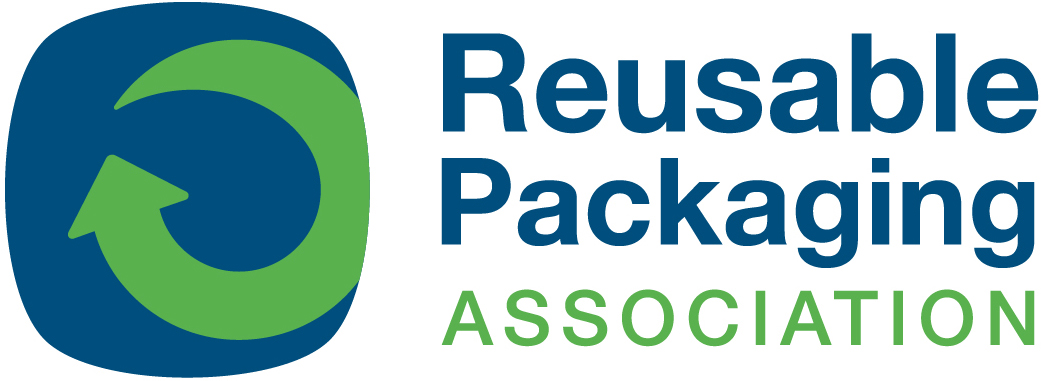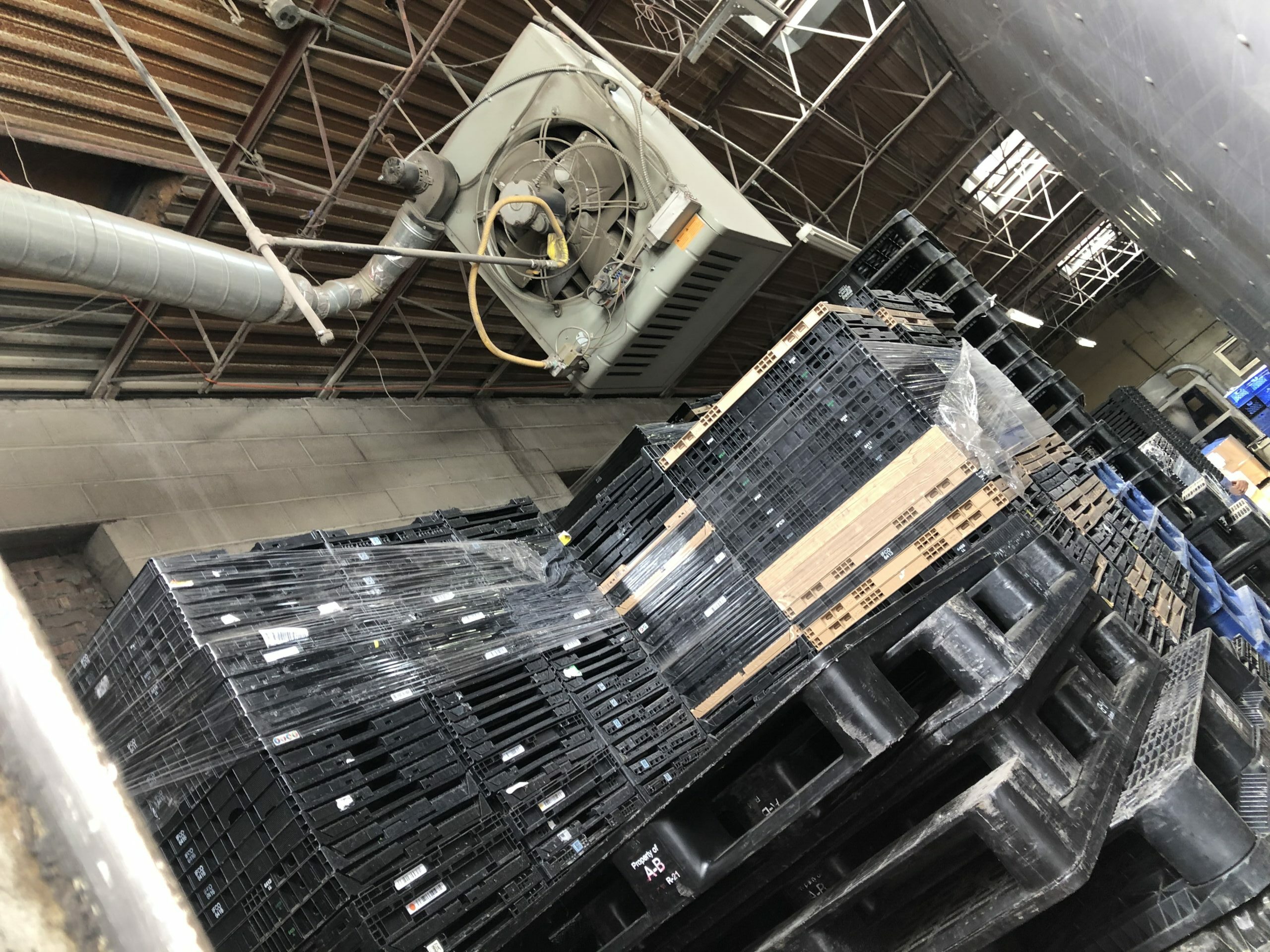Multi-Million Dollar Reusable Packaging Theft Operation Taken Down in Chicago Thanks to Discrete Tracking Technologies
- Reusable asset losses cost billions of dollars annually across US supply chains
- Stolen assets remove materials from the circular economy negatively affects the environment
- Asset poolers and other reusable asset owners have and are actively utilizing sophisticated tracking technologies to identify theft and recover stolen products
- Law enforcement can and will prosecute thieves
- Supply chain participants can play a role in safeguarding assets by keeping them secure from theft, returning them only to authorized carriers, and reporting suspicious activity
In 2021, a major plastic container theft sting was executed in Cook County, Illinois. It resulted in the discovery of an illegal plastic regrind operation which was grinding reusable containers and trays stolen by a network of more than 30 vehicles and dozens of individuals. The regrind and intact containers discovered at the operation are valued in the hundreds of thousands of dollars. The successful sting operation was an integrated effort driven by IFCO SYSTEMS, the global leader of reusable packaging containers (RPCs), and involved two national retailers, a private detective agency, and the Cook County Sherriff’s office. Advanced tracking devices subtly affixed to IFCO containers enabled the group to pinpoint the time and place of thefts, and ultimately, the illegal regrind location, leading to arrests.
Sustainable and economic benefits of reusables undermined by theft
IFCO Systems, the leading global provider of RPCs for the distribution of perishable products, pools, shares, and reuses their digitally enhanced crates with producers for the shipment of fruits, vegetables, eggs, and other fresh products to retailers. Once the containers are emptied, they are accumulated for return to IFCO. They are then sanitized at an IFCO service center and reissued to other growers again and again. RPCs provide important benefits compared to disposable containers. They offer superior product protection and ventilation to help keep products fresh in addition to providing other positive outcomes such as ease of material handling and better load utilization in trailers. These innovative crates are also great for the planet by creating substantial environmental savings. They reduce CO2 emissions by up to 60%, cut solid waste by 86%, use 64% less water, and 80% less energy.
Unfortunately, due to rising costs and raw material shortages, the theft of reusable packaging is an ongoing issue across the country. RPCs and other plastic assets are stolen from exposed retail locations and taken to illegal grinding operations. After the containers are reduced and proprietary markings are eliminated, the reground resin from the stolen plastic products is sold to plastic manufacturers as legitimate regrind raw material.
As a result, the plastic packaging owners are forced to purchase new replacement containers to replenish inventory, increasing costs for the entire supply chain, including consumers. Additionally, container theft negatively impacts the sustainability benefits of reusables. Reusable containers generate such substantial environmental savings because they can be used dozens of times, versus the impact of manufacturing a disposable container for each and every shipment. When reusable containers must be replaced early because of theft, however, the environmental benefits are partially lost. In summary, container theft not only negatively impacts supply chain costs; it also impedes sustainability efforts.
High tech RPCs lead investigators to the illegal recycling location
Over the last few years, IFCO has been embedding small, undetectable GPS trackers on its crates to help identify “leaky” channels. When reports show discrepancies between the volume of RPCs which should be at a particular retail location or area and what is being recovered, it is a strong indication that a reusable packaging theft ring could be operating.
Recently, a lot of assets were disappearing from a national retailer outlet in the Chicago area. Thanks to sensor information, IFCO was able to provide the retailer with approximate windows of time when the RPCs were vanishing. The retailer cooperated by monitoring CCTV footage from security cameras and was able to recover video evidence of theft activity. Additionally, IFCO tracked GPS-tagged RPCs from the retailer as well as from a second retailer, both ending up at an unmarked commercial building with no signage. The address did not match with any retailer or shipper authorized to use IFCO RPCs.
A private investigator was retained to follow vehicles and record theft activities of unprotected RPCs and other reusable plastic containers from large supermarkets as well as mom-and-pop stores.
Based on this compelling evidence, IFCO reached out to the Cook County Sherriff’s office. Law enforcement officials discovered a 2,500 square foot illegal grinding operation. There were tons of regrind material at the location, as well as a massive number of RPCs, beverage bottle trays, plastic bread trays, milk crates, and other rigid plastic containers that are coveted by plastic thieves. To help understand the magnitude of the theft impact, a warehouse full of IFCO and other reusable assets were recovered from the location, not including those already reduced to regrind. In total, IFCO estimates this particular theft operation was responsible for the loss of many tons of plastic material, and a large financial impact
Arrests were made by Cook County Sherriff Raymond Struck, and prosecution of the grinding operator for two felony counts is currently underway.
Retailers and distribution partners play a key role in preventing theft
Reusable asset theft is a serious problem that can impact supply chain costs and sustainability outcomes for everyone in the supply chain. Because reusables are assets that travel the supply chain, it is imperative that all participants, including pool providers, product manufacturers, transport providers, and retailers all play a role in ensuring protection from theft.
A good starting point is for front-line leaders to be mindful that theft is an ongoing risk and act accordingly. Also note that while illegal grinding operations, such as the Chicago operation discussed above, is a major source of loss, reusables may also be stolen for use by other companies so as to avoid having to purchase their own. Reusables may also fall prey to being used for unauthorized purposes within distribution centers or other facilities.
Where possible, ensure that reusable assets are stored in a secure location, either within a building or a fenced enclosure. When reusables are stored outside on an unsecured dock or stacked in an alley or open parking lot, for example, they are particularly vulnerable to theft.
The support of front-line personnel such as dockworkers and drivers is also critical to successfully deterring reusable packaging theft. They can help by making sure that reusables are stored in a secure location, as mentioned above, and by coordinating removal or extra pickups as needed to prevent excessive accumulation. Also, drivers and other personnel should be encouraged to watch for suspicious activity such as unauthorized persons removing containers. Gather as much detailed information as possible and report immediately to your supervisor. An emphasis on training, supervision and supporting signage can make a difference.
The introduction of advanced tracking technologies is now making an important difference. Asset owners such as IFCO and others are increasingly utilizing high-tech unnoticeable sensors to help pinpoint the location of their assets, and armed with this evidence, law enforcement agencies are ready and willing to intervene, make arrests and prosecute. Through these tracking technologies, the collaboration of police and supply chain stakeholders, and effective communication with frontline employees, reusable asset theft can be dramatically reduced, helping to ensure that the economic and sustainability benefits of reusable packaging are fully realized.

